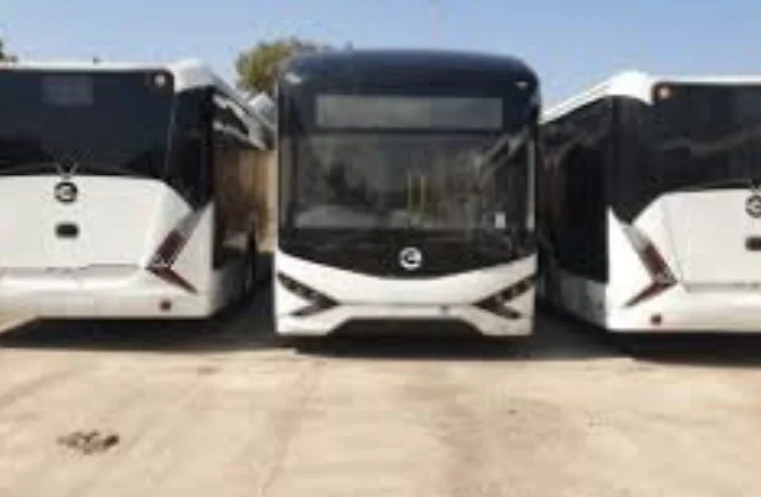Islamabad, Jan 17: The Sindh government has unveiled an ambitious plan to reshape Karachi’s public transportation by introducing 8,000 electric buses over the coming years. This innovative project is set to position Karachi as a leader in sustainable urban mobility while addressing the city’s growing transport challenges.
Three Phases to Transformation
The rollout will occur in three carefully planned phases. The first phase, already underway, will deploy 500 electric buses within a year. Currently, 50 state-of-the-art buses are operational on key routes, setting the stage for an eco-friendly commuting experience.
Read More:
Pakistan Considers EV Tax Cuts for Sustainable Mobility
In the second phase, an additional 1,500 buses will join the fleet, expanding coverage and capacity. The third and final phase will bring in 4,000 to 6,000 electric buses over the next four years. This phase includes a comprehensive infrastructure upgrade, featuring charging stations, depots, and modernized bus terminals to support the growing fleet.
Powering Sustainability
A major highlight of this initiative is the development of a solar power plant with a capacity of up to 1GW, expected to be operational by the end of Phase 3. This renewable energy source will play a pivotal role in ensuring the sustainability and cost-efficiency of the electric bus system, marking a significant step towards greener urban living.
Empowering the Workforce
In an inspiring move toward inclusivity, the Sindh government plans to hire female drivers for the “pink buses,” enhancing gender representation in the public transport sector.
Pilot Project Success
The pilot phase began with 50 buses approved under a rent-to-own model in May 2024. These buses, supplied by the National Energy & Transport Corporation (NETC), operate on a cost-per-kilometer basis. The government has allocated Rs412.50 million for the project’s initial quarter and committed Rs1.65 billion annually over the next eight years to meet financial obligations.
A Modernized Transport Network
This groundbreaking project not only aims to modernize Karachi’s transit system but also addresses critical environmental concerns by reducing carbon emissions. With millions of residents relying on public transportation daily, this initiative promises a cleaner, more efficient, and sustainable future for the city.
